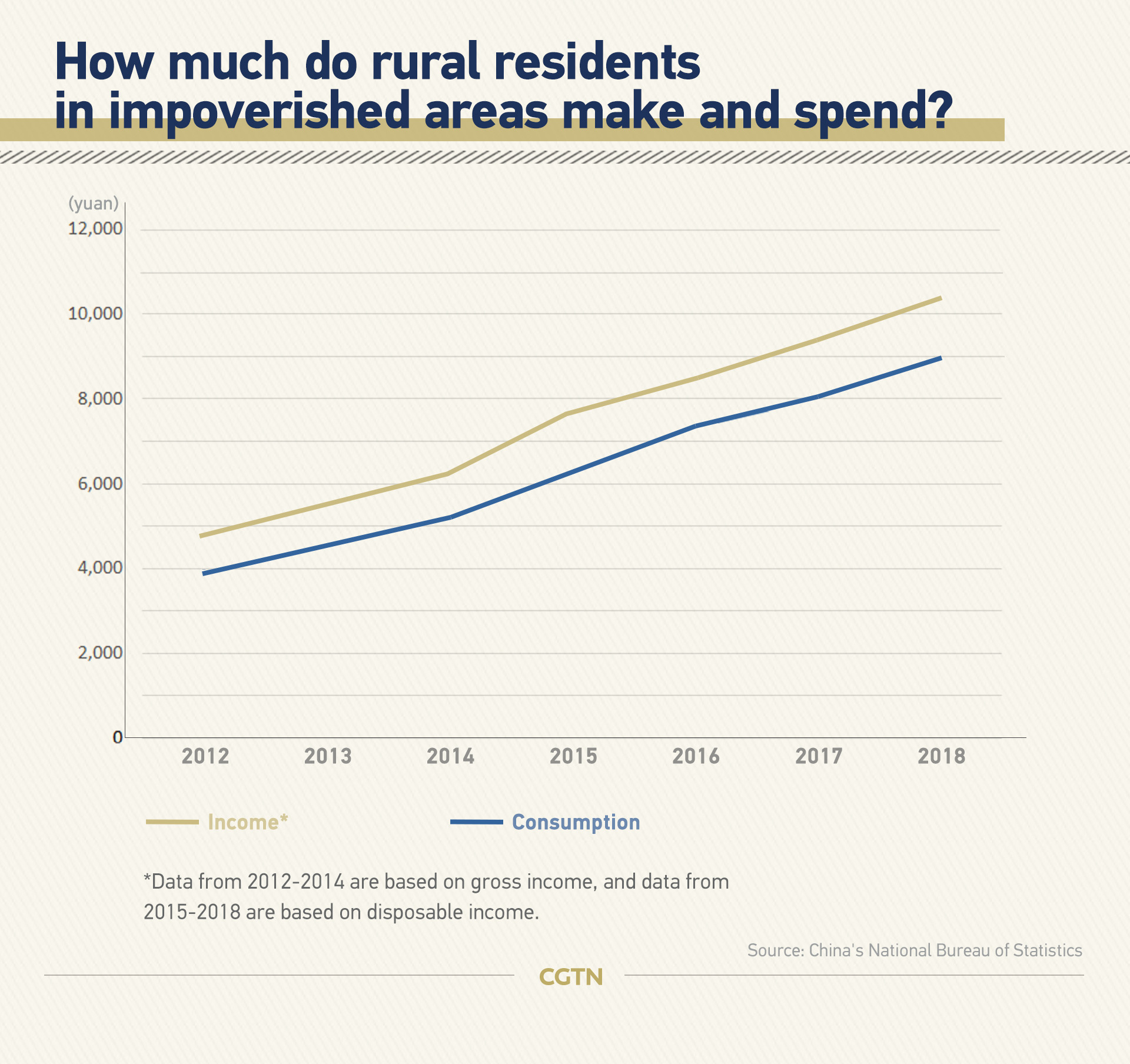02:03

Having researched poverty alleviation for more than 20 years, Li Xiaoyun, a professor at China Agricultural University, has started his poverty reduction program in Hebian village, southwest China's Yunnan Province.
"I worked in a village with chronic poverty for decades," Li told CGTN. "I started my program at the beginning of the year 2015."
Li partnered with the local government and villagers to develop a practical plan for the economic development of the village. Scattered living conditions and poor transportation were among the infrastructural problems he hoped to solve.
Read more:
Poverty alleviation in China: One size doesn't fit all
Graphics: Ending China's poverty by 2020
Guided by the concept of "targeted poverty alleviation," Li developed a tourism plan that was specific to the community's tropical rainforest landscape, which could be used to build up farming industries such as "rainforest eggs," rice, corn and sugarcane.
"I have worked together with my students, local government and farmers. We use the government support and financing to build a house within a guest house," the professor explained, adding that they turned both natural and cultural resources into long-term, income-earning opportunities.
"Now the village became a recreational center," he said.

China has been pushing ahead with targeted poverty relief, which entails identifying and setting up files for every single household in poverty to form a nationwide database that enables the government to devise individual poverty relief plans and trace the results.
By the end of 2018, China slashed the rural population living in poverty from 770 million at the dawn of the reform and opening-up to 1.66 million. The six years between 2013 to 2018 saw more than 80 million people lifted out of poverty.
In earlier interviews, Li told media that Asia's impoverished population dropped from 1.52 billion in 1990 to 263 million in 2015, with China accounting for more than half.
Li hopes that China's poverty reduction plan as well as its successful experience can provide inspirations for other developing nations.